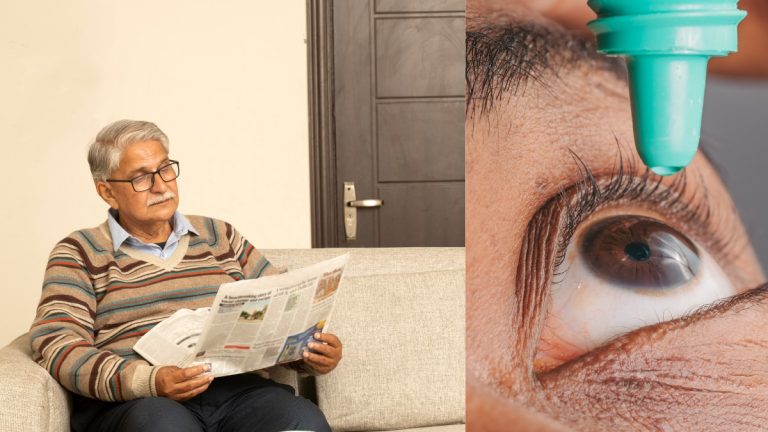Reporter:
Last updated:

Mumbai-based Entod Pharmaceuticals has launched 'PresVu' eye drops made from pilocarpine, which treats 'presbyopia' by reducing the pupil size that helps in seeing close objects clearly.
Prescription drops will be available at pharmacies starting from the first week of October for Rs 350.
After more than two years of deliberations, the drug regulator has approved India's first eye drops to eliminate the need for reading glasses.
Mumbai-based Entod Pharmaceuticals on Tuesday launched 'PresVu' eye drops made with pilocarpine, which treats 'presbyopia' by reducing the pupil size that helps in seeing close objects clearly. Presbyopia is an age-related decrease in the eye's ability to focus on nearby objects, which usually becomes apparent in the mid-40s and worsens around the 60s.
Speaking to News18, Nikkhil K Masurkar, Chief Executive Officer (CEO) of Entod Pharmaceuticals, said that one drop of the drug takes just 15 minutes to take effect and its effect lasts for the next six hours. The effects will last longer if you pour the second drop within three to six hours of the first.
“Until now, there have been no drug-based solutions to the problem of myopia blurring, other than wearing reading glasses, contact lenses, or some surgical intervention.”
Entod Pharmaceuticals specializes in ophthalmic, ENT and dermatological pharmaceuticals and exports to more than 60 countries.
Who can buy this medicine?
From the first week of October, prescription drug drops will be available for sale at pharmacies for Rs 350.
Masuka claims that the drug is the first of its kind in India, tested on Indian eyes and customized to the genetic pivot of the Indian population.
“Similar drugs are available abroad. However, these formulas were not tested on Indian eyes because Indian eyes are very different from Caucasian eyes. We made some changes to the formula,” Masuka said .
This product is sold only on prescription from a registered medical practitioner. The company has begun training its field personnel to inform and educate physicians on the use of the latest products.
Phase 3 successful, ready for post-launch monitoring
Masurkar explained that the company had applied for DCGI approval in early 2022, requiring the company to conduct Phase III clinical trials.
“We conducted the trial on more than 250 patients at 10 sites across India. The results and data have been submitted to the regulatory agency. The subject expert committee approved the study and recommended approval to the Drug Controller General,” he said.
While the findings have not yet been published in a peer-reviewed journal, the company plans to conduct post-marketing surveillance at several large eye care centers across India, including the All India Institute of Medical Sciences (AIIMS) in New Delhi.
“We will also publish the results in a medical journal, but now, we are preparing for post-marketing surveillance, which can help us understand different aspects of the drug,” Masuka added.
